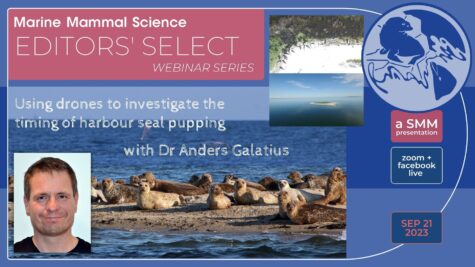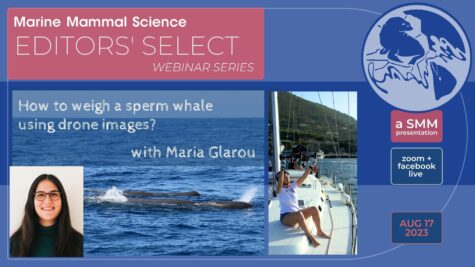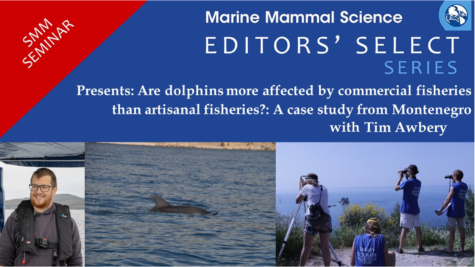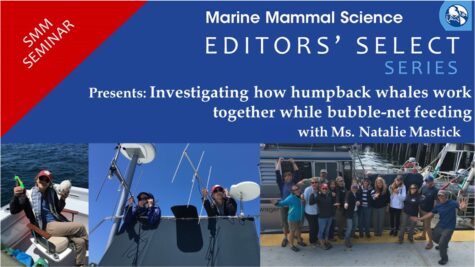
You are invited to the next edition of the SMM Editors’ Select Webinar Series. This series highlights the latest and most exciting marine mammal science published in the Marine Mammal Science Journal. The SMM created this series to give scientists and citizens around the world a chance to engage with marine mammal scientists, learn, and ask questions. All are welcome!
Join us on Thursday, 19 October 2023 at 5pm EDT / 10pm GMT / 7am +1 AEST
for the next SMM Editors’ Select Series Webinar:
Genetically separate populations of dugongs in Australia:
implications for coping with local environmental stressors
with Dr. Janet Lanyon
This event was recorded live and put on youtube: youtu.be/PpUeaEFK5eY
For future events, please check our news room or join the SMM Facebook page.
About this talk:
Despite the lack of obvious physical barriers and their ability to travel significant distances, many marine mammals exhibit substantial population structuring over relatively short geographical distances. The dugong (Dugong dugon) is a vulnerable marine mammal found in inshore seagrass habitats throughout the Indo-Pacific, including in the waters of northern Australia. We investigated the genetic population structure of dugongs in the shallow coastal waters along >2000 km of the eastern Queensland coast including the Great Barrier Reef region. Microsatellite genotypes for 22 loci in 293 dugongs, SNP genotypes based on 10,690 loci in 43 dugongs, and 410 bp mitochondrial control-region sequences from 639 dugongs were analysed. Clustering analysis techniques consistently identified an abrupt genetic break in the Whitsunday Islands region of central Queensland (20.3°S), which interrupts an overall pattern of isolation-by-distance. Geographic distance was relatively more important than sea-surface temperature and seagrass distribution in explaining pairwise microsatellite genetic distances. The cause of reduced dispersal across this region is unknown but might relate to an unusual tidal and current mix, termed the ‘sticky-water’ effect, and/or a break in the geographical distribution of offshore seagrass meadows. This genetic structuring suggests distinct breeding units north and south of the Whitsunday Islands region, and also mostly separate populations with limited gene flow within each of the north and south ranges. Recently, profiles of faecal microbiota from dugongs from all along the Queensland coast show marked variation, supporting these separate populations and possibly indicating ecological differences, e.g., feeding niches. Implications of these separate genetic populations in terms of how dugongs might respond to local threats to habitat and how these findings should be considered when developing management plans for Queensland dugongs will be discussed.
About the presenter:
Janet Lanyon is a zoologist, specializing in marine mammal biology. For thirty years, Janet has been a full-time academic at The University of Queensland (UQ) and Director of the UQ Marine Vertebrate Research Group. Since 1995, she has been Lead Investigator in a long-term population and health study of the dugongs of southern Queensland, Australia. She has published widely on diverse aspects of the biology of marine wildlife, and is an Associate Editor of the journal Marine Mammal Science. Her research expertise includes the ecology, physiology and conservation biology of marine megafaunal wildlife, principally dugongs, coastal dolphins and sea turtles.
Open access to this article is made temporarily available in the weeks around the presentation and can be found here. Current SMM members have access to all Marine Mammal Science papers.
Missed a presentation or want to share this series with a friend? All previous Editors’ Select presentations are recorded and archived on our YouTube channel here.





